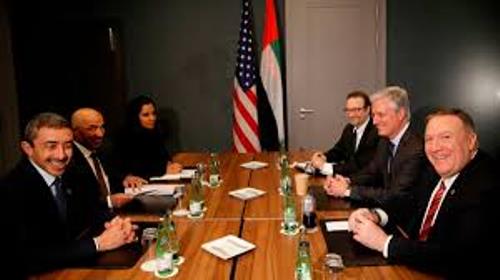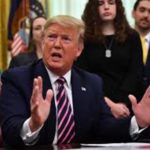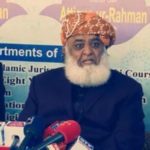A conference in Berlin that has gathered several world leaders to discuss the Libya conflict will call for sanctions against parties found in violation of a ceasefire, a draft communique obtained by CNN shows.
The warring factions fighting for power over the Libyan capital, Tripoli, and their foreign backers were invited to the summit in Germany, with the aim of preserving a fragile ceasefire brokered by Russia and Turkey a week ago and restarting talks around a political solution to what has become a proxy war.
Violence escalated in April last year when renegade General Khalifa Haftar launched a bid to take Tripoli from the UN-recognized government, led by Fayez al-Serraj. Hundreds have died and 150,000 people, mostly children, have been internally displaced since then, according to the UN Children’s Fund.
“We call upon the UNSC [United Nations Security Council] to impose appropriate sanctions on those who are found to be in violation of the ceasefire arrangements and on Member States to enforce these,” the draft says.
The Russia-Turkey ceasefire appeared to have held for several days, but Haftar walked out of ceasefire talks in Moscow aimed at cementing the deal in the early hours of Tuesday this week. Heavy gunfire was reported days later.
Haftar was at the conference in Berlin on Sunday, but it wasn’t immediately clear whether Serraj would attend the peace talks.
The comminque expresses a commitment to “refraining from interference in the armed conflict or in the internal affairs of Libya” and urges all international actors to do the same.
The draft also calls for all parties to refrain from attacking oil facilities and infrastructure.
German Chancellor Angela Merkel invited French President Emmanuel Macron and Russian President Vladimir Putin, whose countries have shown support for Haftar. Turkish President Recep Tayyip Erdogan was also expected to attend, backing Serraj.
US Secretary of State Mike Pompeo is attending talks, although the US policy on Libya is unclear. A Senior State Department official told reporters that the US thinks “all foreign forces should be out of Libya.”
“This is a regionwide conflict that is broadening and looking increasingly like Syria which is why the whole community the international community is getting together in Germany,” the official said.
“But I think it’s so complex and heels are so far dug in that I would have moderate expectations as we go into this.”
Pompeo’s Russian counterpart, Foreign Minister Sergei Lavrov, was also expected to attend talks.
Instability has reigned in the North African country since the fall of strongman Moammar Gadhafi in 2011.
Serraj’s internationally recognized Government of National Accord (GNA) runs the capital and the country’s northwest, while Haftar’s National Army (LNA) runs a parallel government, with control of most of the east and around two-thirds of the country. He has reportedly received some support in the past from Saudi Arabia, Egypt, the United Arab Emirates, Russia and France.
The GNA had the rubber stamp from the UN, and its main backers are Turkey, Qatar, and some EU states. Turkey recently voted to send troops to Libya to prop up Serraj’s government, while some 2,000 Syrian fighters have also joined the conflict to defend the capital.
Russia has been seen bolstering its presence in Libya, deploying paramilitary forces there to support Haftar, according to the US State Department. Russia claims the troops are not tied to Moscow; it has used the same explanation to describe its mercenaries in like in Ukraine.













